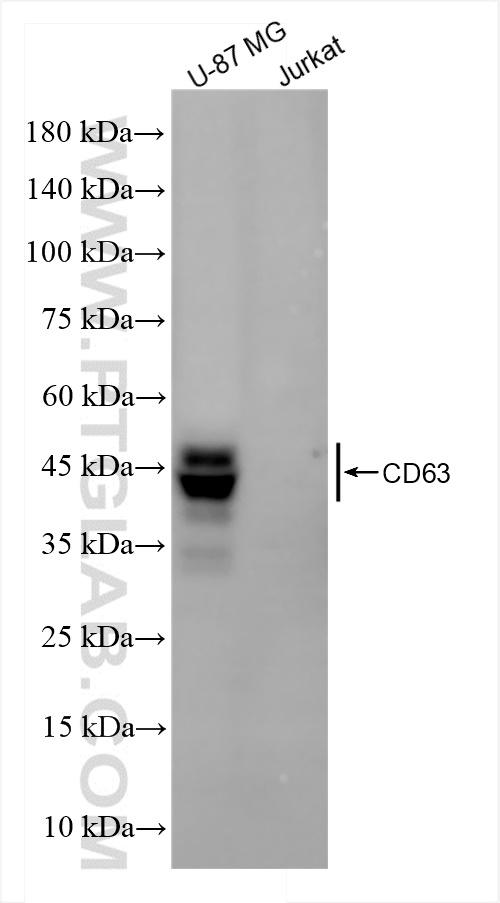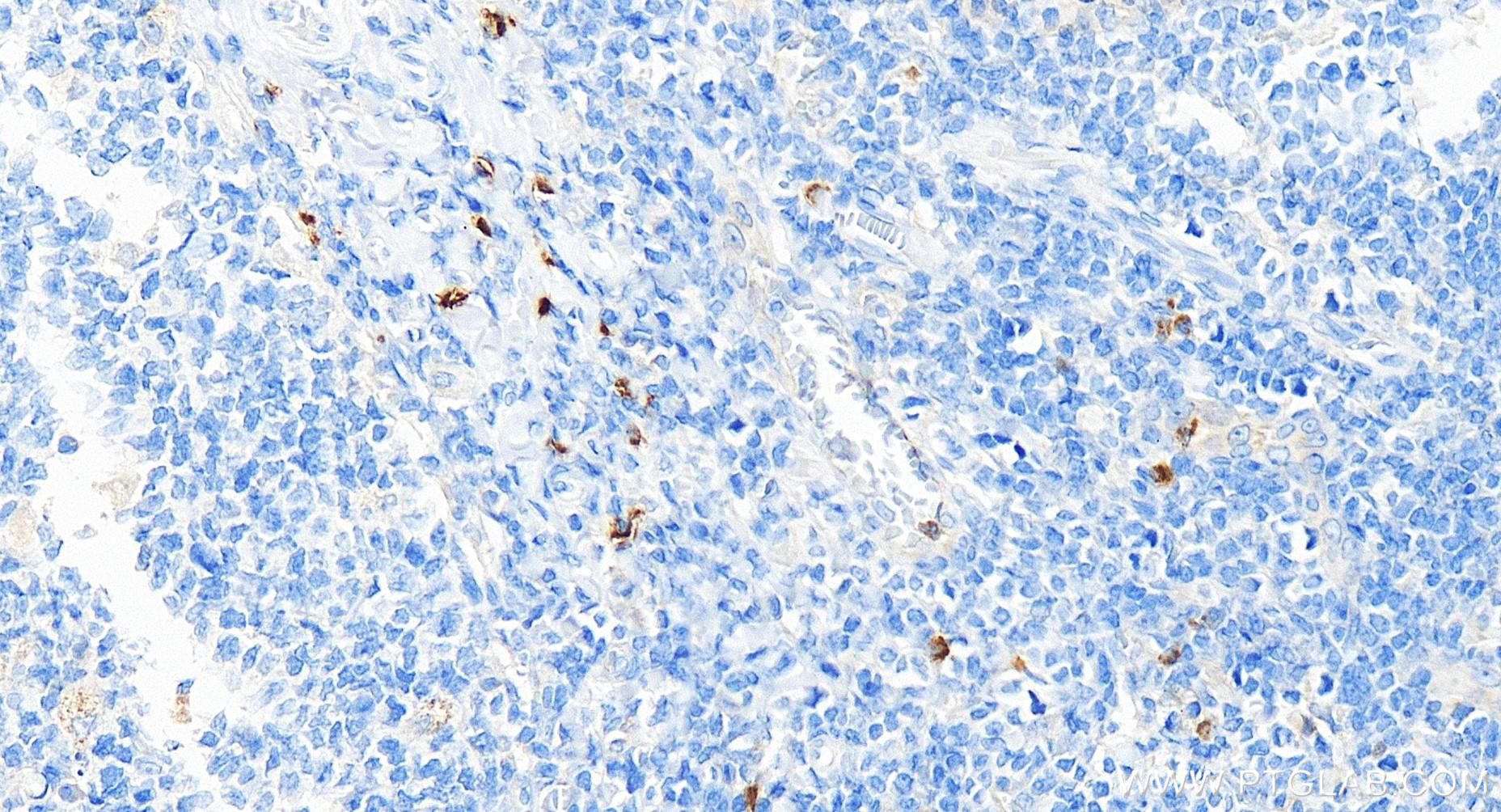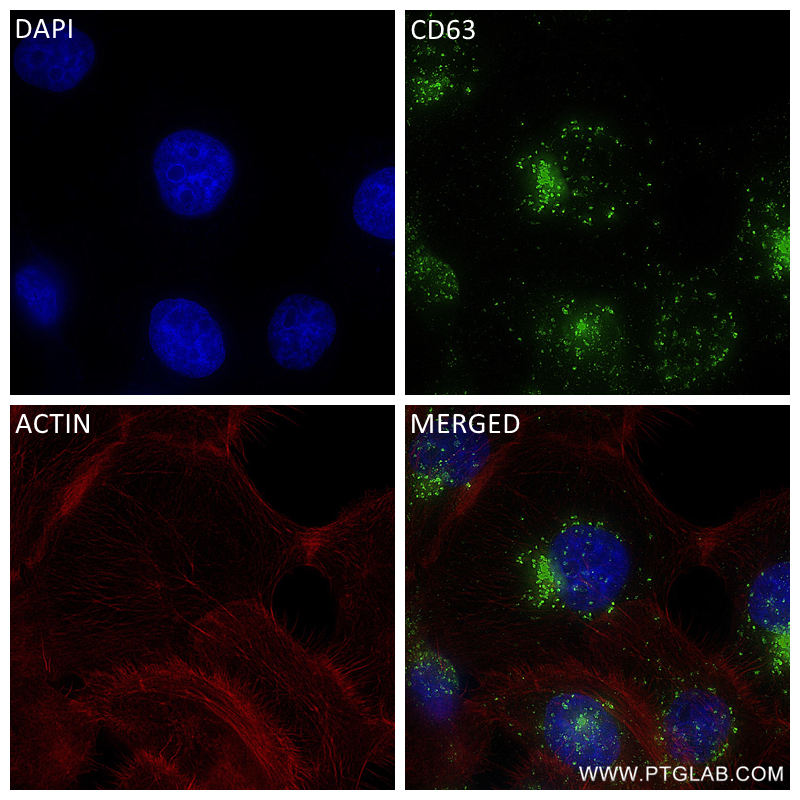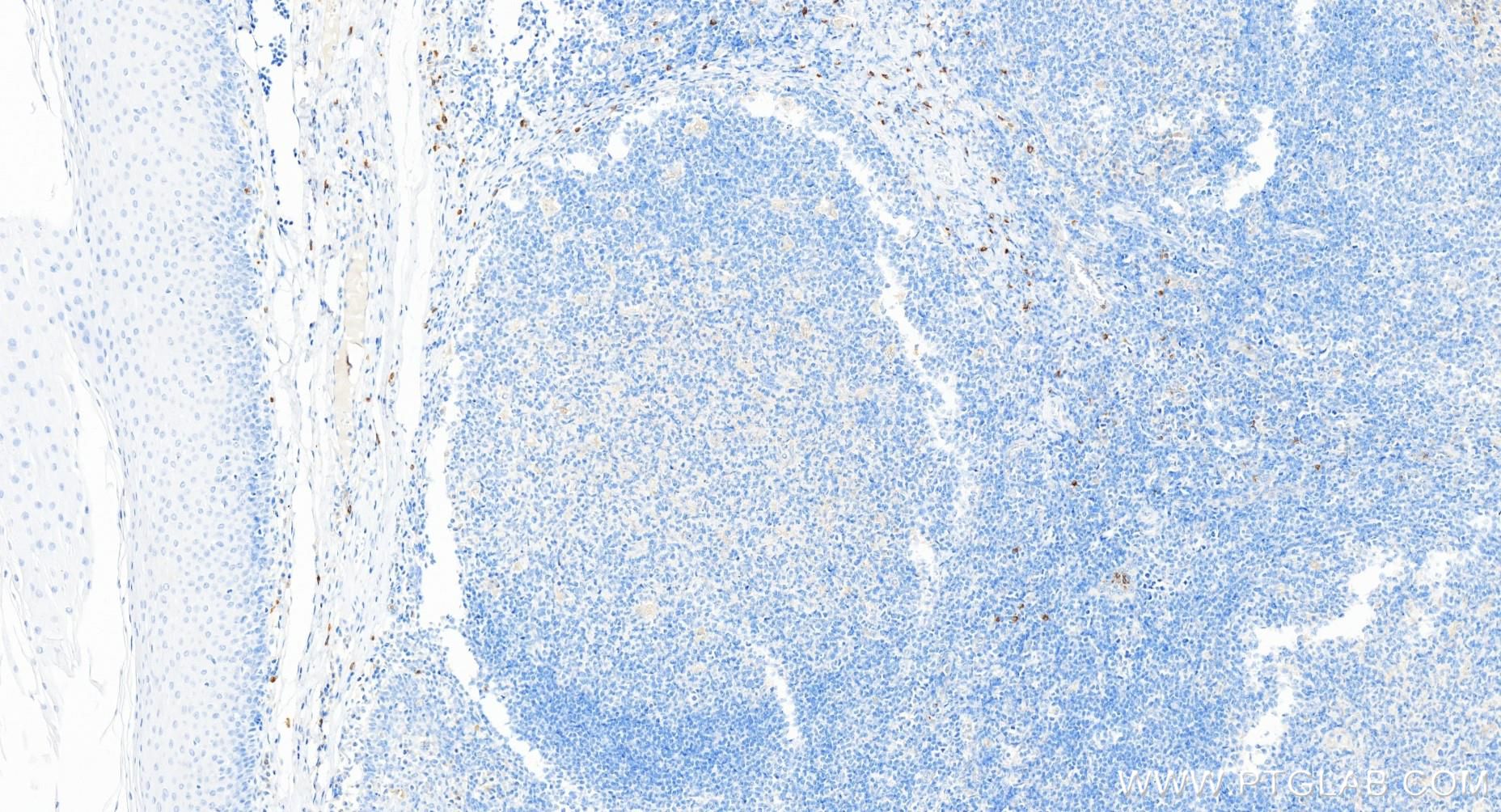验证数据展示
产品信息
84507-4-PBS targets CD63 in WB, IHC, IF/ICC, Indirect ELISA applications and shows reactivity with human samples.
| 经测试应用 | WB, IHC, IF/ICC, Indirect ELISA Application Description |
| 经测试反应性 | human |
| 免疫原 | FusionProtein 种属同源性预测 |
| 宿主/亚型 | Rabbit / IgG |
| 抗体类别 | Recombinant |
| 产品类型 | Antibody |
| 全称 | CD63 molecule |
| 别名 | Lysosome integral membrane protein 1, Lysosomal-associated membrane protein 3, Limp1, CD63 antigen, CD 63 |
| 计算分子量 | 26 kDa |
| 观测分子量 | 30-60 kDa |
| GenBank蛋白编号 | BC002349 |
| 基因名称 | CD63 |
| Gene ID (NCBI) | 967 |
| 偶联类型 | Unconjugated |
| 形式 | Liquid |
| 纯化方式 | Protein A purfication |
| UNIPROT ID | P08962 |
| 储存缓冲液 | PBS only , pH 7.3 |
| 储存条件 | Store at -80°C. The product is shipped with ice packs. Upon receipt, store it immediately at -80°C |
背景介绍
CD63 is a 30-60 kDa lysosomal membrane protein that belongs to the tetraspanin family. This protein plays many important roles in immuno-physiological functions. It mediates signal transduction events that regulate cell development, activation, growth, and motility. CD63 is expressed on activated platelets, thus it may function as a blood platelet activation marker. CD63 is a lysosomal membrane glycoprotein translocated to the plasma membrane after platelet activation. The CD63 tetraspanin is highly expressed in the early stages of melanoma and decreases in advanced lesions, suggesting it is a possible suppressor of tumor progression. Deficiency of this protein is associated with Hermansky-Pudlak syndrome.



